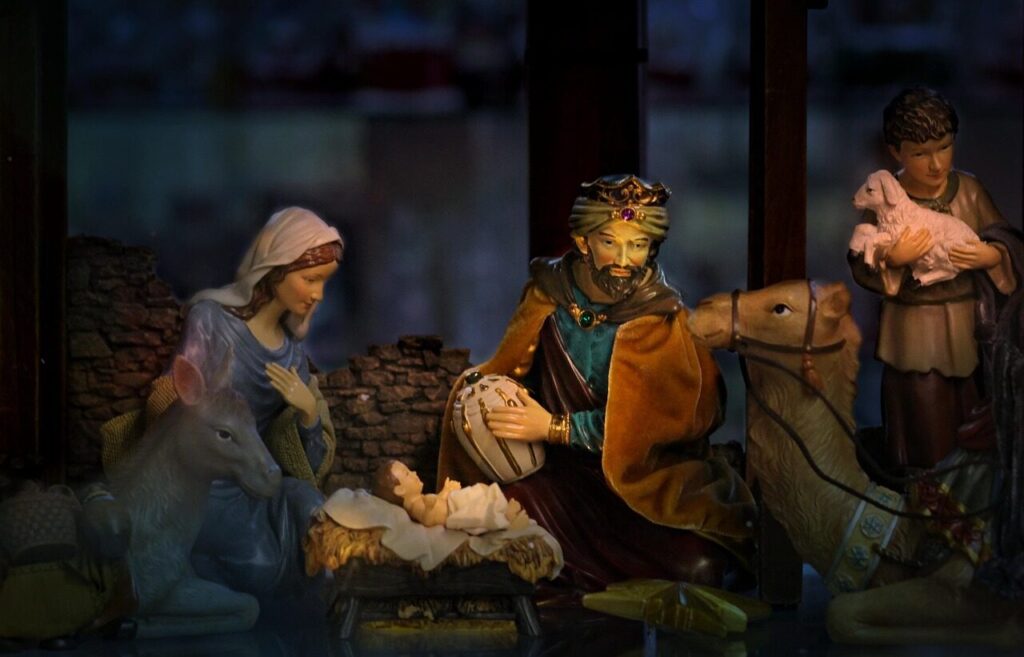The Bible contains stories that have inspired, guided, and shaped cultures for thousands of years. Yet, many of these narratives are often misunderstood or simplified in popular retellings. Misinterpretations can arise from translation choices, cultural assumptions, or reading ancient texts through a modern lens. Some events are thought to be literal when they carry symbolic meaning, while others are reduced to simple morals rather than complex lessons about faith, courage, or human nature. Understanding these stories more accurately allows us to appreciate their richness, explore their historical and theological context, and see the human struggles and triumphs embedded in the text. This article highlights ten famous biblical events that are often misunderstood, providing insights that reveal their deeper significance and enduring relevance.
1. The Creation Story

The story of creation in Genesis is often imagined as a literal six-day process with a precise timeline. In reality, many scholars view it as a theological narrative designed to show God’s relationship with the world rather than a scientific account. Each “day” emphasizes order emerging from chaos, the intentionality behind the universe, and the inherent goodness of creation. The narrative explores the human role within creation, emphasizing stewardship, responsibility, and the value of life. By focusing on its spiritual and moral lessons, rather than trying to measure days literally, the story becomes a timeless reflection on purpose, harmony, and divine care for all living things.
2. Noah’s Ark

Noah’s Ark is widely pictured as a small wooden vessel carrying pairs of all animals. However, the story likely carries symbolic meaning about faith, obedience, and divine protection rather than literal zoological logistics. In its ancient context, it reflects a narrative of human sin, judgment, and salvation through adherence to God’s commands. The flood symbolizes renewal, cleansing, and the chance for humanity to start anew. Rather than focusing on the specifics of animals or dimensions, the story emphasizes moral and spiritual lessons, the importance of trusting divine guidance, and the consequences of human choices. Noah’s Ark encourages reflection on faith and perseverance in the face of overwhelming challenges.
3. The Ten Commandments

Many imagine the Ten Commandments as a simple list of rules handed down by God on Mount Sinai. While the iconic image of Moses with the stone tablets endures, the commandments served a larger purpose as a covenant for communal living. They provided ethical and moral guidance to build a just, responsible, and cohesive society. Beyond prohibitions, they encourage positive behavior, respect, and the maintenance of social order. These laws framed relationships between God, humans, and each other, emphasizing justice, care, and integrity. Understanding them as a foundational ethical framework highlights the spiritual and practical guidance embedded in these ancient texts, revealing their relevance even today.
4. Jonah and the Whale

The story of Jonah being swallowed by a great fish is often taken literally, but its true value lies in its symbolic and spiritual meaning. Jonah’s journey represents human reluctance, fear of responsibility, and resistance to divine instruction. Being swallowed symbolizes a period of reflection, repentance, and transformation. The narrative emphasizes God’s mercy, patience, and willingness to forgive those who turn back toward righteousness. Jonah’s eventual acceptance of his mission teaches lessons about courage, humility, and the importance of following one’s calling. Reading the story this way highlights timeless human struggles, offering insights into self-discovery, moral responsibility, and the transformative power of obedience.
5. David and Goliath

The tale of David and Goliath is often simplified to an underdog defeating a giant through courage alone. While bravery is central, the story also explores faith, leadership, and strategic thinking. David’s victory reflects trust in God rather than mere physical strength. It also illustrates cultural and political tensions between the Israelites and their neighbors. The narrative provides a model for facing overwhelming challenges with intelligence, moral conviction, and reliance on higher principles. By seeing it as more than a simple battle, readers can understand lessons about perseverance, responsibility, and the importance of using one’s gifts wisely to make a meaningful difference in the face of adversity.
6. The Parting of the Red Sea

The parting of the Red Sea is often depicted as an instant miraculous event, but interpretations suggest it may reflect a combination of natural occurrences and divine intervention. The story illustrates God’s protection and salvation for the Israelites during a moment of crisis. It also conveys themes of faith, courage, and deliverance from oppression. Beyond the dramatic imagery, the narrative teaches about trust in divine guidance, communal resilience, and the human capacity to persevere under pressure. Understanding the event as both a spiritual and historical lesson deepens its meaning, highlighting the intersection of faith and human experience in moments of fear, uncertainty, and liberation.
7. The Virgin Birth

The virgin birth is sometimes misunderstood as a literal biological event without symbolic significance. In the biblical context, it emphasizes the unique divine mission of Jesus and the fulfillment of prophecy. The story communicates the extraordinary nature of his life and the spiritual authority attributed to him. It also highlights themes of humility, obedience, and the mystery of divine intervention in human affairs. Rather than focusing solely on biology, the narrative invites reflection on faith, hope, and the way extraordinary events can bring transformative meaning to ordinary lives. The virgin birth encourages understanding of spiritual symbolism and the broader theological purpose of Jesus’ mission.
8. The Crucifixion of Jesus

The crucifixion of Jesus is often viewed as a moment of suffering and injustice, but it carries far deeper theological and moral significance. It represents redemption, forgiveness, and the ultimate expression of God’s love for humanity. The narrative also highlights the human capacity for cruelty, the weight of societal and religious pressures, and the courage of moral conviction. By focusing on the spiritual context, the crucifixion teaches about sacrifice, resilience, and the transformative power of compassion. It reminds readers that profound lessons often emerge from suffering and that enduring hope and renewal can follow even the darkest moments, offering a timeless reflection on faith and human experience.
9. The Resurrection

The resurrection is frequently misunderstood as only a miraculous event, but it also embodies themes of renewal, hope, and spiritual victory. It validates Jesus’ teachings and demonstrates the triumph of life over death. The story inspires courage, moral conviction, and the belief in divine justice. For followers, it symbolizes the possibility of personal transformation, the assurance of redemption, and the enduring presence of hope in difficult circumstances. Understanding the resurrection in context helps appreciate its theological depth and its role in shaping the foundation of Christian faith. It is a reminder that faith often involves trust in unseen possibilities and the potential for new beginnings.
10. The Tower of Babel

The Tower of Babel is often seen as divine punishment for human pride, but it also reflects the human desire for connection, achievement, and understanding. The story explains the origin of diverse languages and cultures while emphasizing the limits of human ambition without guidance. It invites reflection on communication, cooperation, and the importance of humility in pursuing goals. Beyond moral lessons, it offers insight into social dynamics, creativity, and the challenges of collaboration across differences. By considering the story’s deeper meaning, readers can see it as a celebration of human curiosity and ambition while acknowledging the need for wisdom, respect, and guidance in all endeavors.
Comments